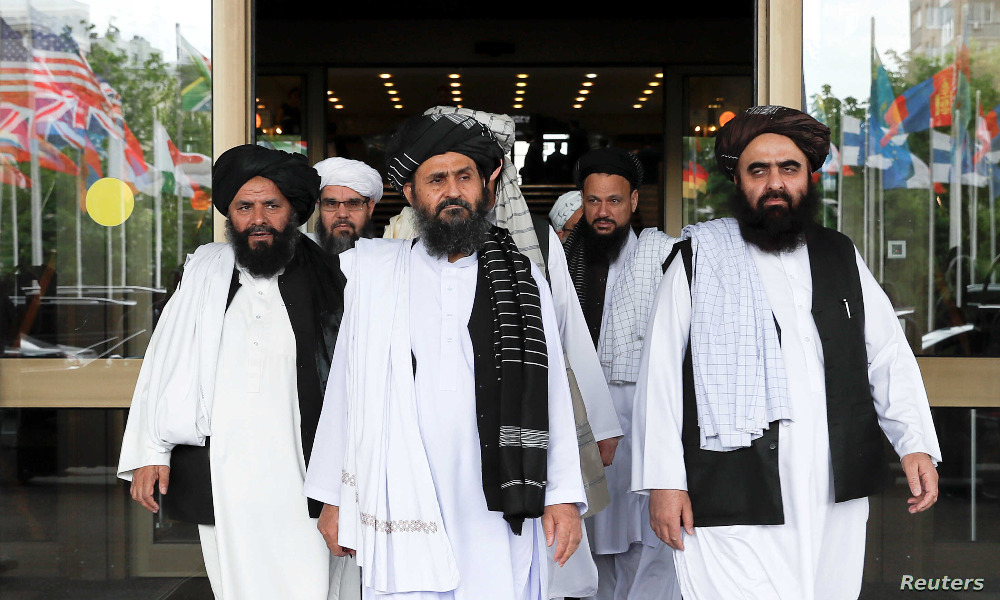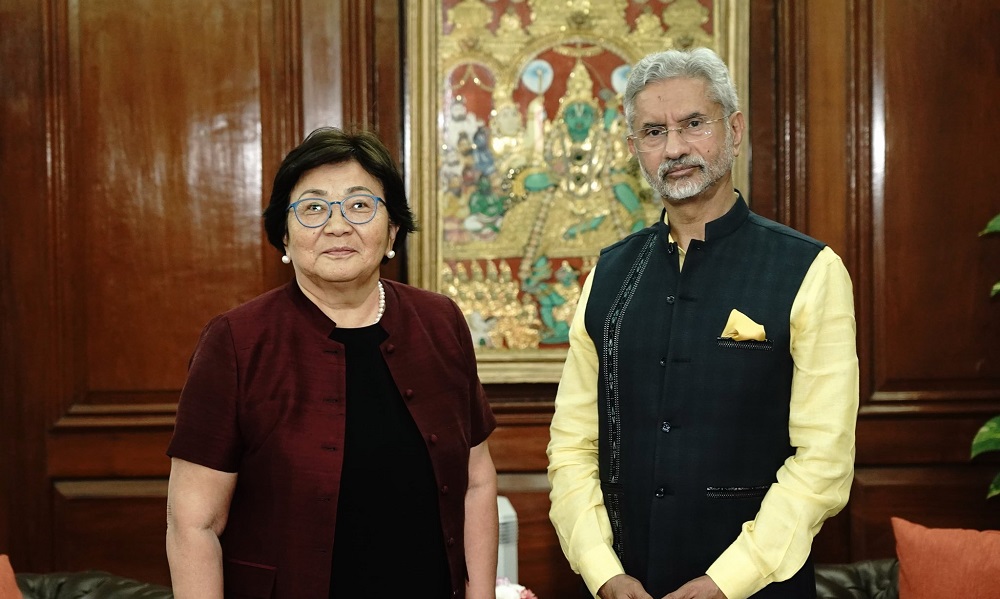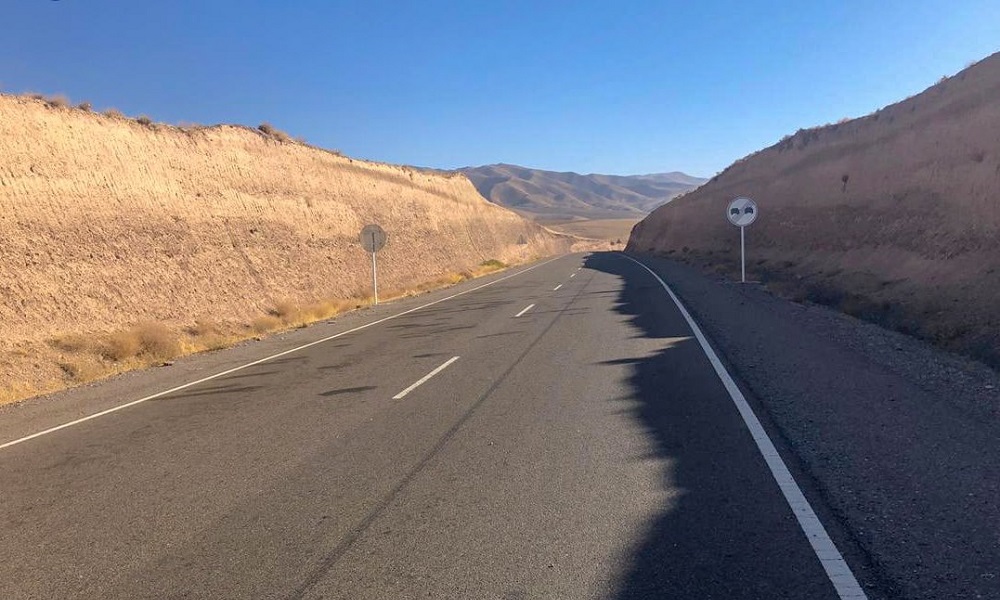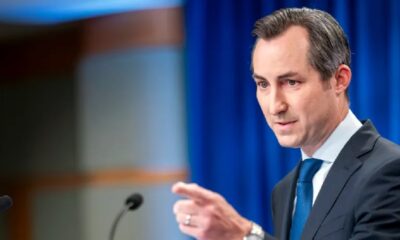Latest News
Taliban make big changes ahead of expected talks with Kabul

The Taliban have put the son of the movement’s feared founder in charge of their military wing and added several powerful figures to their negotiating team, Taliban officials told Associated Press.
The shake-up, one of the most significant in years, comes ahead of expected talks with Kabul aimed at ending decades of war in Afghanistan.
As head of a newly united military wing, 30-year-old Mullah Mohammad Yaqoob brings his father’s fiercely uncompromising reputation to the battlefield.
Equally significant is the addition of four members of the insurgent group’s leadership council to the 20-member negotiating team, Taliban officials told Associated Press.
The shuffle, overseen by Taliban leader Mullah Hibatullah Akhunzada, is meant to tighten his control over the movement’s military and political arms, the officials said on condition of anonymity because they were not authorized to discuss the inner workings of the Taliban.
According to AP, analysts say the shake-up could be good news for negotiations with the Afghan political leadership, and a sign of how seriously the Taliban are taking this second — and perhaps most critical — step in a deal Washington signed with the insurgents in February.
“I’d say it appears to be a positive development because the Taliban are creating a delegation that seems more senior and more broad-based than they’ve used to date, or than might be strictly necessary for the opening stages of talks,” said Andrew Wilder, vice president of the Asia Program at the Washington-based US Institute of Peace.
“If you want to see the glass as half full, this strengthened Taliban delegation could be interpreted as a sign that the group is planning to engage in serious discussions,” he said.
When the US signed the deal with the Taliban on February 29, after more than a year and a half of negotiations, it was touted as Afghanistan’s best chance at peace in four decades of war. It was also seen as a road map for the withdrawal of US troops from Afghanistan, ending America’s longest war.
On Monday, four-and-a-half months since the signing, chief US negotiator and peace envoy Zalmay Khalilzad tweeted that “a key milestone in the implementation of the US-Taliban agreement” had been reached as American troop numbers dropped to 8,600 from about 12,000 and five bases were closed in Afghanistan.
Even as Khalilzad chastised increased insurgent attacks on Afghan security forces, he said the Taliban had been true to their word not to attack US and NATO troops.
“No American has lost his/her life in Afghanistan to Taliban violence. Regional relations have improved,” he tweeted.
The Taliban have stepped up their military activity against Afghan government forces since Yaqoob’s appointment in May, a sign the militants under his leadership may see battlefield wins as upping their leverage at the negotiating table.
“I can see a lot of reasons for the Taliban to be pushing the envelope — perhaps as a negotiation tactic, but equally likely as a means to test US limits,” said Daniel Markey, a senior research professor at Johns Hopkins University’s School of Advanced International Studies.
“So far, the Trump administration looks like it is heading for the exit, no matter what. Why not ratchet up the violence to see what greater victories can be won?”
Surprisingly, the shuffle also sidelined senior Taliban leader Amir Khan Muttaqi, removing him from the negotiating committee.
Seen as close to neighboring Pakistan, his removal could limit Pakistan’s influence and buttress their position with Kabul, which is deeply suspicious of Islamabad.
Already a deputy head of the movement, the sudden appointment of the son of Mullah Mohammed Omar as the Taliban military chief reportedly ruffled feathers among members of the leadership council, who had not been consulted.
Yaqoob, however, met with the council and won over the dissenters, said the Taliban officials.
“Yaqoob’s appointment appears to be, at least in part, an effort by Mullah Akhundzada to shore up oversight of battlefield operations at a key moment … as the insurgents ramp up violence to strengthen their negotiating position in preparation for potential peace talks with the Afghan government,” said Michael Kugelman, deputy director of the Asia Program at the Washington-based Wilson Center.
In recent weeks, hopes have been raised of a July start to negotiations but the Taliban and the Kabul government have become bogged down in the final release of prisoners, a prerequisite for the start of negotiations.
Taliban spokesman Zabihullah Mujahid told the AP on Friday that the Taliban reject government efforts to substitute prisoners from the originally negotiated list for the exchange.
Countries have been lining up to host the talks, with Germany being the latest to put in an offer and Turkey, Iran, Indonesia, Japan and Norway reportedly among the nation’s volunteering.
However, the Taliban and Afghan government officials say the first round is likely to be held in Doha, the capital of Qatar, where the Taliban maintain a political office.
The newly strengthened negotiating team includes Abdul Hakeem, the Taliban’s chief justice and confidant of Akhunzada, as well as Maulvi Saqib, who was chief justice during the Taliban rule.
Under the US-Taliban deal, the Taliban — who during their rule of Afghanistan hosted al-Qaeda chief Osama bin Laden as he planned the 9/11 attacks — have pledged to no longer host any terror groups.
They also guarantee that Afghanistan will not be used as a launching arena for future attacks against America.
In a tweet this week, Khalilzad said “more progress is needed on counter-terrorism,” without elaborating.
This week, US Secretary of State Mike Pompeo also spoke about the controversy surrounding the White House over reports of Russian money being paid to Afghan militias — reportedly with links to the Taliban — to kill US troops.
“There’s a lot of Russian footprints; there are Russian weapon systems there. We have made clear to our Russian counterparts that we ought to work together to get a more sovereign, more independent, peaceful Afghanistan,” he said.
Latest News
Ten people killed by floods in Helmand

Ten people have been killed and six others injured by floods in Helmand province in the past week, local officials said on Friday.
According to officials, seven of those were members of the same family, and they were killed in Kajaki district last night.
“Most of the people moved from vulnerable areas to high lands and mountains, and thanks Allah the number of casualties is low,” Sher Mohammad Vahdat, the head of information of the Directorate of Information and Culture in Helmand, said adding rescue teams and security forces have been dispatched to help people.
It is said that the telecommunication system has also been disrupted due to the effect of floods in Kajaki district. Floods have also destroyed thousands of acres of agricultural land.
Latest News
UN envoy meets Indian foreign minister to discuss Afghanistan

Roza Otunbayeva, the UN Secretary General’s Special Representative for Afghanistan, met with the Indian Foreign Minister Subrahmanyam Jaishankar in New Delhi and discussed issues related to Afghanistan, it was announced on Thursday.
During the meeting, Otunbayeva thanked India for “its critical humanitarian support and longstanding friendship for the Afghan people” and discussed the importance of regional and international cooperation to address prevailing challenges in Afghanistan, UNAMA said on X.
Jaishankar also said on X that the sides exchanged views on the current situation in Afghanistan.
“Underlined that India has provided wheat, medicines, pesticides and school supplies. Appreciate the role of UN agencies as partners in these endeavors,” he said.
Latest News
Traffic accident leaves one dead, four injured in Herat

Local officials in Herat say one person was killed and four others injured due to a traffic accident in Karukh district of the province.
The accident took place on Thursday night at 8:pm.
The injured individuals have been taken to Herat’s regional hospital by the personnel of Karukh district police headquarters, local officials said.
-

 Sport4 days ago
Sport4 days agoACL fever grows as fixtures finalized
-

 World4 days ago
World4 days agoUS will not take part in any Israeli retaliatory action against Iran
-

 Latest News4 days ago
Latest News4 days agoOver 50 people dead in traffic accidents over Eid
-

 Latest News4 days ago
Latest News4 days agoUS identifies Kabul airport suicide bomber
-

 Latest News4 days ago
Latest News4 days agoGood rains enable DABS to increase power production in Kabul
-

 Business4 days ago
Business4 days agoAfghanistan-Kazakhstan chamber of commerce opens in Herat
-

 World3 days ago
World3 days agoIsraeli military vows response to Iran attack as calls for restraint mount
-

 Latest News3 days ago
Latest News3 days agoPakistani police give Afghans in Balochistan one day to leave
























